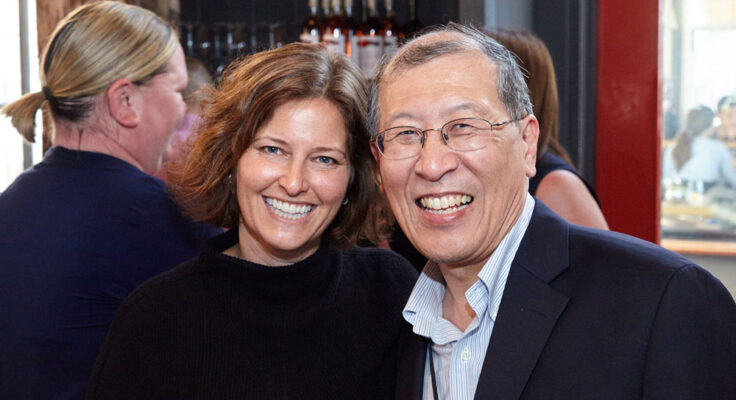Dr. Averil Ma has been a scientific advisor to the Kenneth Rainin Foundation for nearly two decades. As a preeminent clinician-scientist studying the molecular mechanisms underlying inflammation and cancer, his expertise has guided our focus on Inflammatory Bowel Disease (IBD) research. In January, he transitioned from his long-time role chairing our Scientific Advisory Board to serve as an advisor. We are thrilled he will continue to inform our work alongside the many leading medical and scientific researchers he recruited to join this Advisory Board.
In this blog Laura Wilson, PhD, Director, Health Strategy & Ventures, and CEO Jen Rainin, PhD, reflect on Dr. Ma’s leadership and how his creativity and expertise have shaped our Health Program.
Tell us about when you first met Dr. Ma and how he guided the Kenneth Rainin Foundation’s early years.
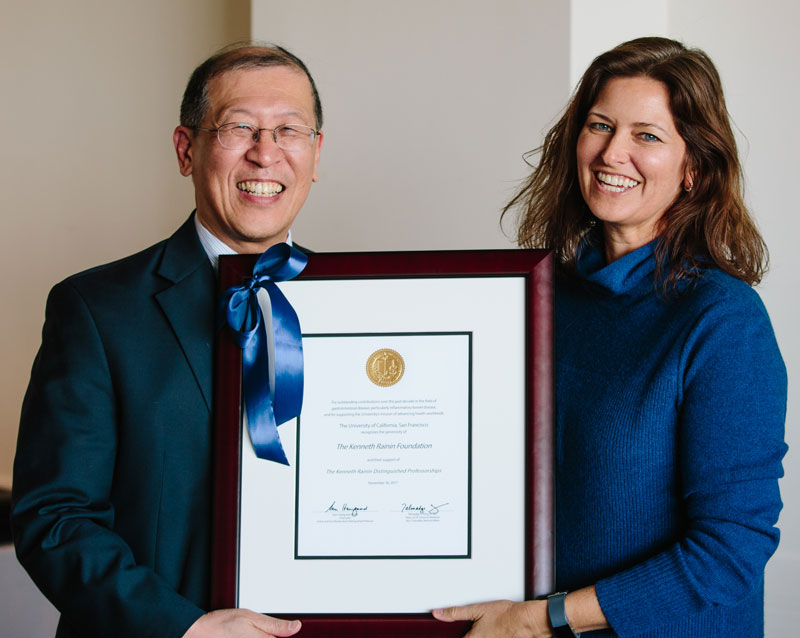
Jen: My father, Kenneth Rainin, and I met Dr. Ma in 2004. The University of California, San Francisco, had recruited him to helm its new Colitis and Crohn’s Disease Center, which was established through my father’s generosity. Dr. Ma’s arrival was a milestone for the center’s evolution and for IBD research, and it would prove to be invaluable to me and for the Foundation.
When the Foundation launched in 2008, I knew one of the giving areas would be focused on IBD research. My dad died as a result of complications from a surgery around this disease, and I manage my disease every day. At the time, IBD was on the rise in the US and globally. Yet there had been little progress in our understanding or treatment of the disease. I saw an opportunity for our grantmaking to change that and sought the advice of experts to think through how it could work. I called Dr. Ma and Dr. Claudio Fiocchi at Cleveland Clinic, both of whom I deeply respect. They recommended forming a Scientific Advisory Board. Dr. Ma was very clear that the scientific advisors should reflect different areas of expertise, from basic science to clinical research, to ensure we had the best minds to guide us.
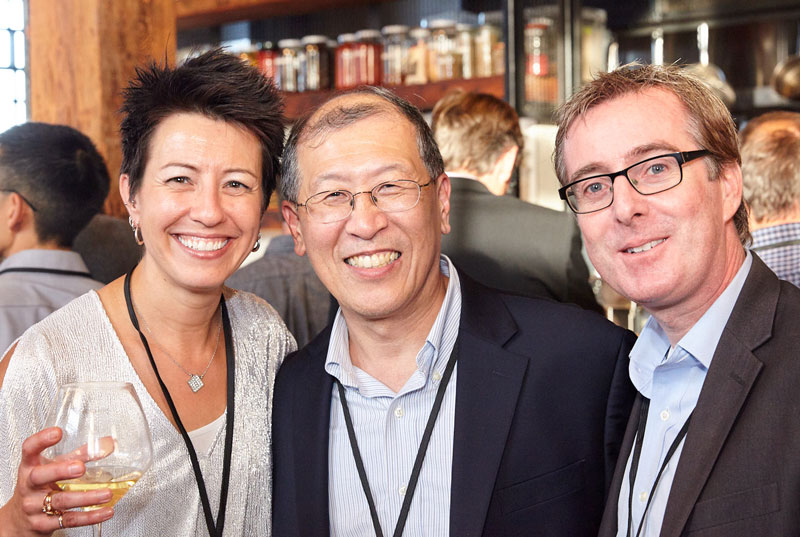
Laura: Dr. Ma has been instrumental in guiding and expanding the Scientific Advisory Board since 2009. It takes an exceptional person to recruit influential, smart scientists to serve a newly created philanthropic organization. Over the years, Dr. Ma has engaged an extraordinary group of scientists who support our Health program by making funding recommendations, shaping content for our annual Innovations Symposium and advising on strategies to improve patient outcomes.
Jen: Dr. Ma has great respect for my father. I think his ongoing commitment to the Rainin Foundation and our Scientific Advisory Board are an important part of honoring my father’s legacy, which I appreciate.
As a clinician and scientist, how has Dr. Ma’s expertise helped shape and evolve the Foundation’s grantmaking strategy?
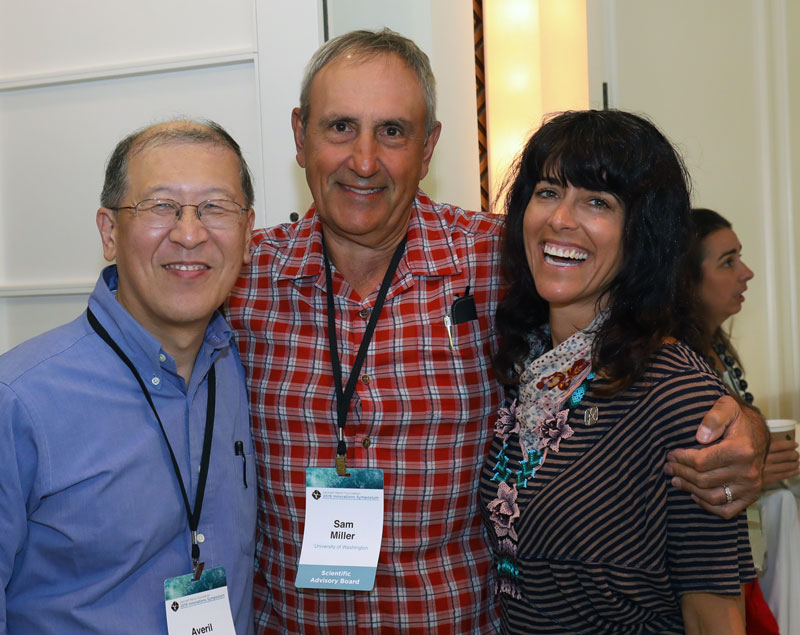
Jen: There are very few funders working in IBD. When the Foundation started, we looked at what other organizations funded to understand the gaps and where the Rainin Foundation could make the most impact. Dr. Ma got to know me and my tolerance for risk. In philanthropy, I believe the real risk is not trying; it’s maintaining the status quo. It’s waiting for somebody else to try something first and that’s not a risk I’m willing to take. So with that as a baseline, Dr. Ma proposed a strategy for supporting early stage, novel research ideas. If our funding could allow an investigator to prove their concept, then they could pursue grants from NIH and other funders who require more advanced research. Understanding that the beginning of an idea is where we could make the greatest impact was Dr. Ma’s idea, and it remains core to our grantmaking today.
In those early years, we focused on basic research in part because our grantmaking budget was smaller. We wanted to make sure that we were having the maximum impact.
“Understanding that the beginning of an idea is where we could make the greatest impact was Dr. Ma’s idea, and it remains core to our grantmaking today.”
Jen Rainin, PhD
Laura: When I joined the Foundation in 2016 to lead the Health Program, the goal was to add to the focus on basic science and be more patient focused as our grantmaking budget expanded. Dr. Ma helped us shift our grantmaking to include translational science. We made this shift because we recognized the importance of translational science to accelerating progress into predicting, preventing and treating IBD.
The idea for the Innovations Symposium was proposed at a Scientific Advisory Board meeting. How did Averil’s leadership nurture that idea and the Symposium’s ongoing evolution?
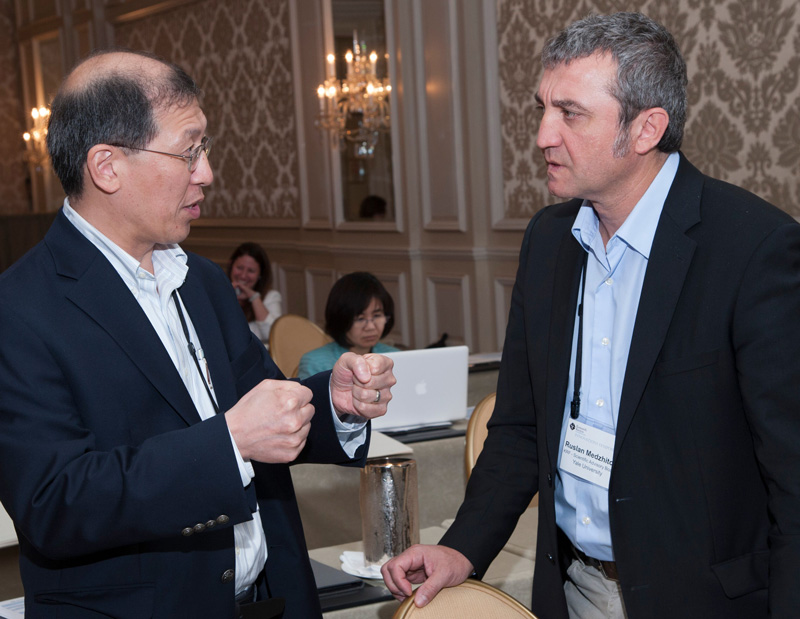
Jen: Part of what is exciting for the Scientific Advisory Board is that we are a relatively young organization, and we’re nimble and open. They have a real opportunity to help shape what we do, and Dr. Ma has held that up as a critical pillar from the start.
Early on, Dr. Ma persuaded the incredibly brilliant Dr. Ruslan Medzhitov to join the Scientific Advisory Board. Dr. Medzhitov proposed an idea for an unconventional symposium highlighting scientists from related fields doing the most interesting, cutting-edge work. He envisioned an event that could help a broader audience see the bridge between their work and the world of IBD research. Dr. Medzhitov said his idea was influenced by how Dr. Ma had structured and led the Scientific Advisory Board.
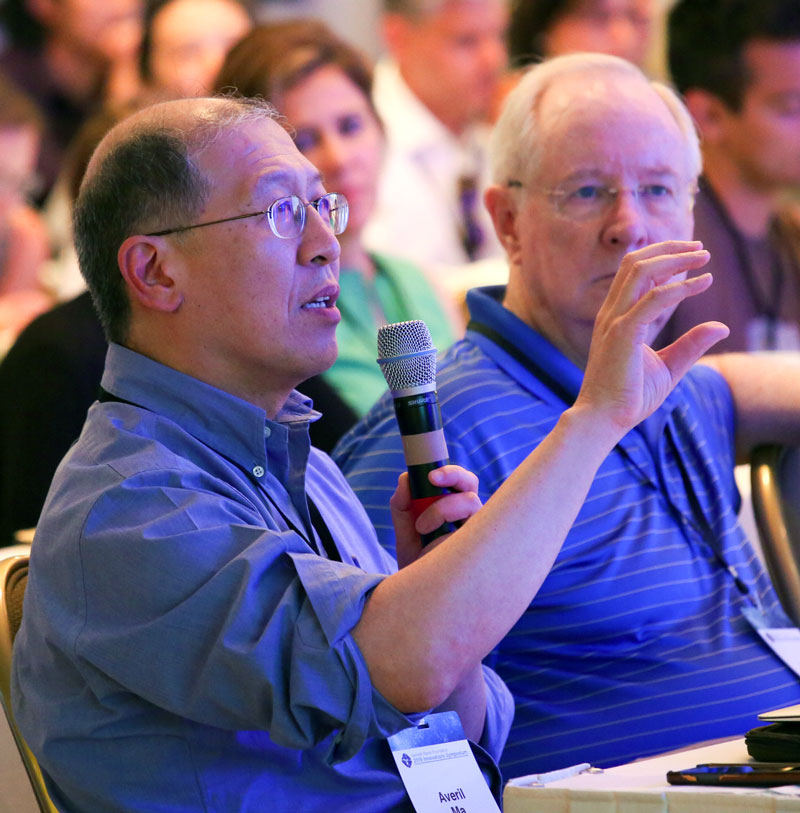
Laura: This year, we are hosting our 11th annual Innovations Symposium to bring the scientific community together to foster relationships, exchange ideas and share progress about IBD research. Dr. Ma’s insights are key to shaping the speaker lineup. The Symposium is known for featuring groundbreaking investigators who are doing high quality, high risk and high reward research that has the potential to shift paradigms. Each year we strive for gender parity in the presenter line up and include speakers who may not necessarily work in IBD research, but whose work could impact the IBD research being done. We believe that this type of interaction and exposure is important.
During the pandemic, Dr. Ma’s enthusiasm kept the quality and momentum of the event going. Understanding the value of connecting scientists and advancing research in a time of isolation, we reimagined our Innovations Symposium as a virtual event. In 2020 we hosted an intimate event with our grantees, and our last two virtual symposia were open to scientists worldwide. This iteration was possible in large part because of Dr. Ma’s support and leadership on our Scientific Advisory Board.
How have Dr. Ma and the Scientific Advisory Board embraced the Foundation’s values of interdependence, creativity and equity?
Laura: To find a cure for IBD, collaborating with other creative and experienced scientific minds is essential. Dr. Ma has advocated for collaboration as a key value of our giving and our work throughout the Foundation. We believe that increased synergy across fields can lead to transformational progress in research, bringing science closer to the patient. Collaboration can lead to advancements. It’s not just good for the soul. It’s good for IBD research and it benefits the patients.
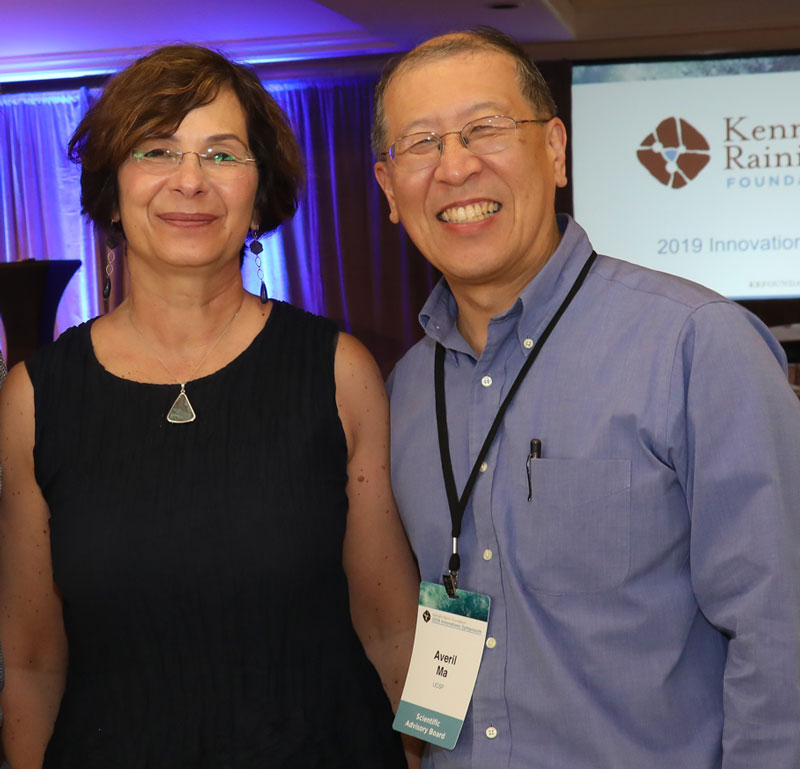
Jen: Dr. Ma has shown up for every review session for every grantee. And the way he shows up is important. He deeply considers the science and the challenges that an investigator is having. He consistently shows up with a curious mind as well as decades of experience, which makes his contributions so valuable.
Laura: Our equity journey in the Health Program started five years ago. Our Scientific Advisory Board was essential to thinking through where we could have an impact in advancing equity in the biomedical enterprise. We began by lifting up scientists who identify as women and continue to explore how we can contribute to advancing racial equity in biomedical research. Everyone on the Scientific Advisory Board plays a role in this work. But in his role as Chair, Dr. Ma encouraged the ideas and creativity of others, he listened to colleagues and championed our shared goals. We have achieved significantly more gender parity in our grantmaking and in the speakers at our Innovations Symposium through his leadership.
“In his role as Chair, Dr. Ma encouraged the ideas and creativity of others, listened to colleagues and championed our shared goals.”
Laura Wilson, PhD
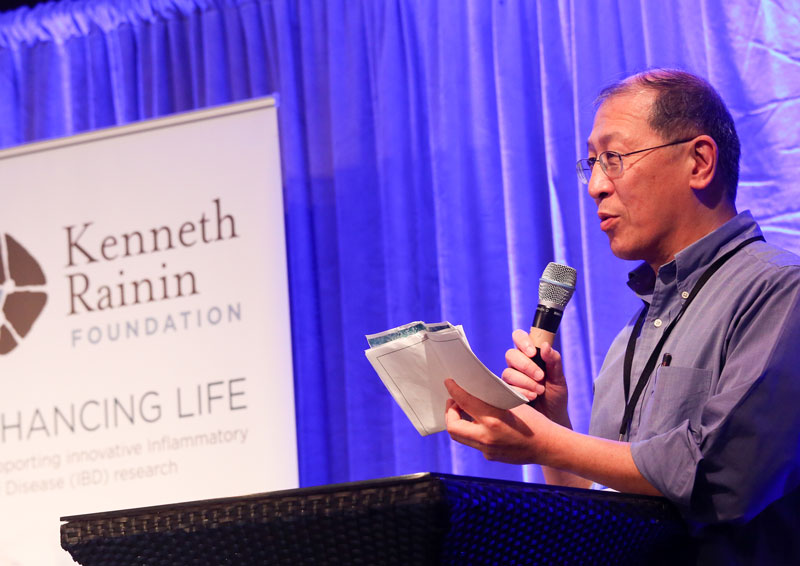
Jen: Dr. Ma has shaped so much of my thinking about how we do what we do as an organization, including that everything we do is a grand experiment, and like in science, we use data to learn and iterate. He’s been a part of every conversation we’ve had about our Health strategy, from start to finish. I’m so grateful for Dr. Ma’s continued leadership, commitment and expertise. He is invaluable to me and the whole organization.
